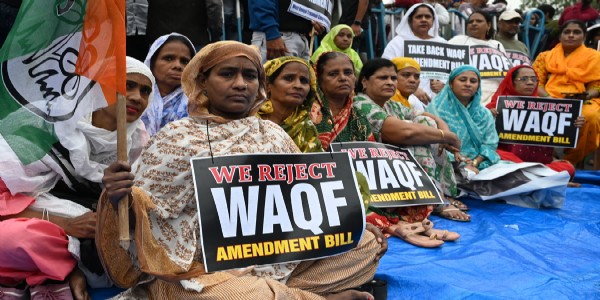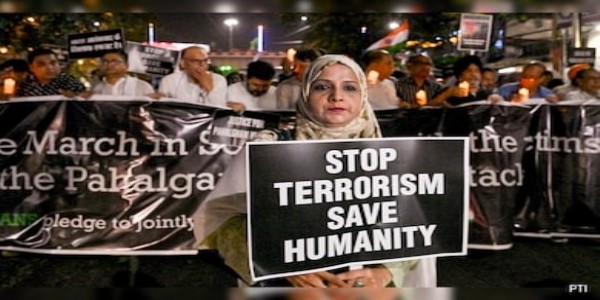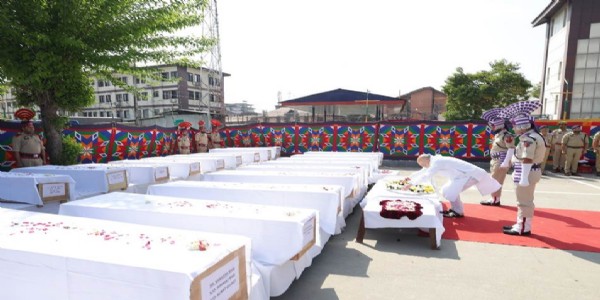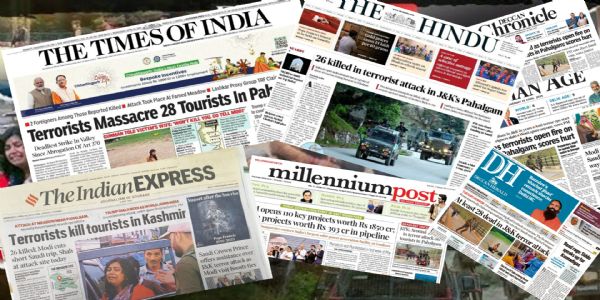INSIGHT XVIII: Reality of Christian missionaries through the lens of Arun Shourie's book
Namaskar, the new series "INSIGHT" is an attempt to present the central thought of a thought-provoking book. "Missionaries In India Continuities, Changes, Dilemmas", a book by Shri Arun Shourie compels readers to contemplate various points put forth.
Total Views |
India was labeled as ignorant and illiterate, obviously, Missionaries and Government schools had every opportunity to be set up. All the other aspects of Hindu or Indian life specially polity and society too were labeled and condemned. We were supposed to be indebted to the British for educating us in English, as a result, English was treated to be a language in, which we all could communicate. Even now we are made to believe that without English, the country couldn't have been able to conduct administration and we could become one country only because of this thread of language.
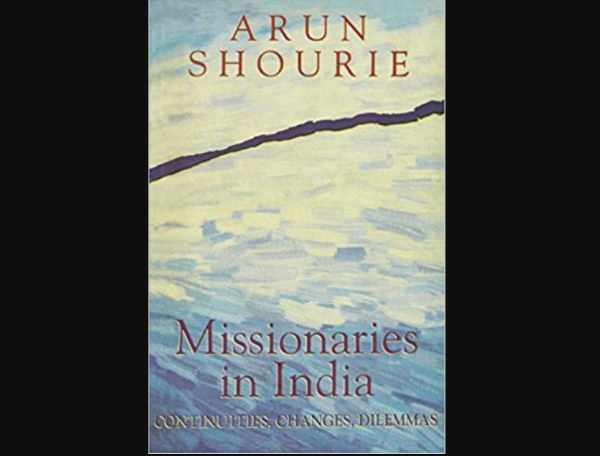
Horace Hayman Wilson, (a knowledgeable witness, a professor at Oxford, the oriental visitor at Haileybury college where administrators of India used to be trained, a member of the committee of public instruction and was associated with Sanskrit and Muslim colleges too) had a different view compared to Macaulay. He thought that it was essential to give importance to Sanskrit. He did not believe Indian literature to be worthless. He pointed to the fact that teachers were not available for instructing in English or native languages. Focusing on English, according to him would result in ' extensive dissatisfaction '.
He wrote a book, ' The Religious and Philosophical System of the Hindus ', to be able to refute the Hindu religious system. Obviously, his focus on teachers with knowledge of Sanskrit was to help people to listen to the person who was to educate all. Ultimately the true knowledge was to be imparted. (In English and science) So he asked to target the class well-educated for the task. People respect them, and as a consequence, there would be a class of people at the command of rulers. ( Recorded in the minutes of the select committee on Indian territories 1853).
It was asserted repeatedly by all that before British rule, India was not one country. Sanskrit was labeled to be a dead language, though the fact was noticed that as far as the Indian languages, it ' formed the very body of most of dialects ' of northern India. And he notes the fact that it was a part of the composition of the language of Malabar too, 4/5 of the words belonged to Sanskrit. ( In spite of this fact, it was claimed that Sanskrit did not have much relation with the South Indian languages) Indian cultural icons were described to be inferior to Christ. ( The icons of lord Rama and Krishna were the targets of a whirlwind of disinformation, and many Gods were also made the object of the falsehood. They were described to be, 'sinners, evildoers, licentious, corrupt, coils of lust, anger, greed, obstinacy, and pride.
Thus the devotees too were reduced to be ' sinners and ignorant '. How can devotees be better than their Gods? The most important attribute of purity is nowhere to be found in these Gods. ( One wonders of the audacity of the people who use such language and the line of arguments to serve the ultimate purpose of conversion and confuse the native people. This all is well documented .)
1813 Wilberforce stated in the house of commons,' their divinities are absolute monsters of lust, injustice, wickedness, and cruelty '. In 1881 Charles Trevelyan in his address said, ' from murder to petty larceny, every crime has its patrons in the Hindu pantheon'. Right up to the mid-1950 the expressions and distortions were the same.

Horace Hayman Wilson, (a knowledgeable witness, a professor at Oxford, the oriental visitor at Haileybury college where administrators of India used to be trained, a member of the committee of public instruction and was associated with Sanskrit and Muslim colleges too) had a different view compared to Macaulay. He thought that it was essential to give importance to Sanskrit. He did not believe Indian literature to be worthless. He pointed to the fact that teachers were not available for instructing in English or native languages. Focusing on English, according to him would result in ' extensive dissatisfaction '.
It was asserted repeatedly by all that before British rule, India was not one country. Sanskrit was labeled to be a dead language, though the fact was noticed that as far as the Indian languages, it ' formed the very body of most of dialects ' of northern India. And he notes the fact that it was a part of the composition of the language of Malabar too, 4/5 of the words belonged to Sanskrit. ( In spite of this fact, it was claimed that Sanskrit did not have much relation with the South Indian languages) Indian cultural icons were described to be inferior to Christ. ( The icons of lord Rama and Krishna were the targets of a whirlwind of disinformation, and many Gods were also made the object of the falsehood. They were described to be, 'sinners, evildoers, licentious, corrupt, coils of lust, anger, greed, obstinacy, and pride.
Thus the devotees too were reduced to be ' sinners and ignorant '. How can devotees be better than their Gods? The most important attribute of purity is nowhere to be found in these Gods. ( One wonders of the audacity of the people who use such language and the line of arguments to serve the ultimate purpose of conversion and confuse the native people. This all is well documented .)
1813 Wilberforce stated in the house of commons,' their divinities are absolute monsters of lust, injustice, wickedness, and cruelty '. In 1881 Charles Trevelyan in his address said, ' from murder to petty larceny, every crime has its patrons in the Hindu pantheon'. Right up to the mid-1950 the expressions and distortions were the same.
Bharati Web
Mes, Pune




